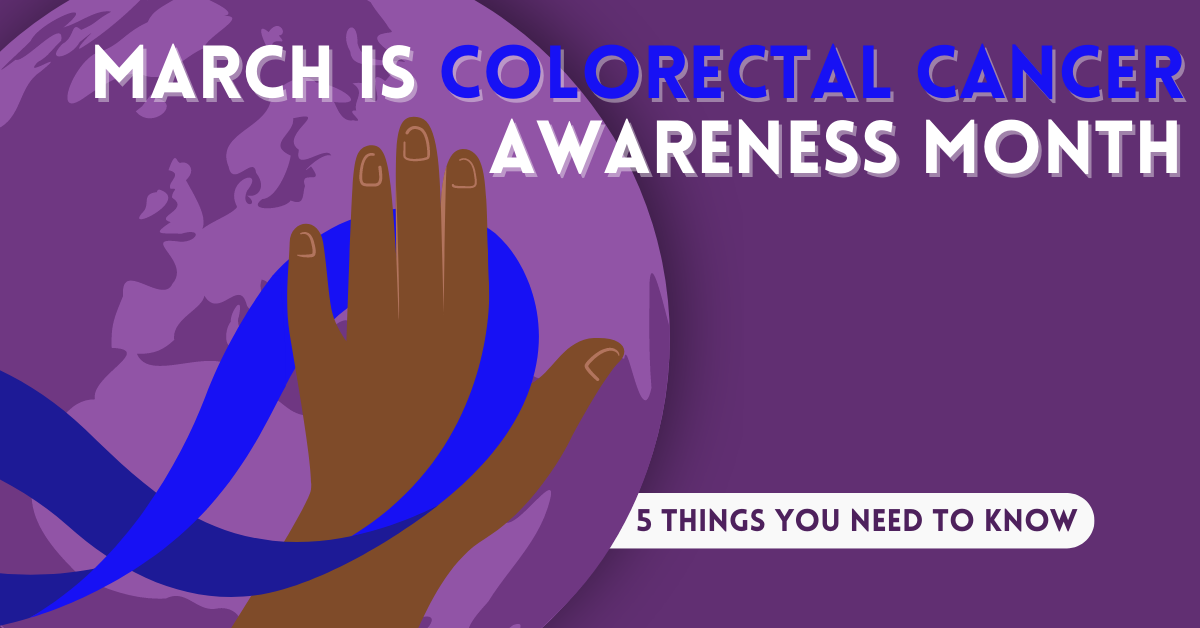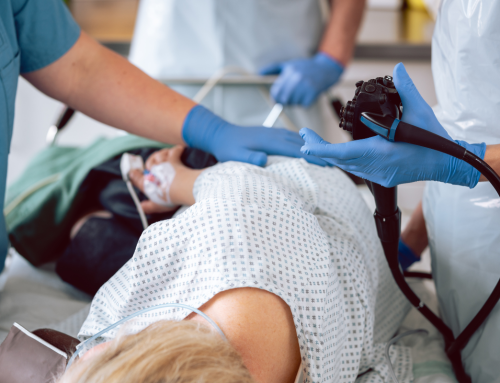
Did you know that March is National Colorectal Cancer Awareness Month? Colorectal cancer (CRC) is the third most common cancer in the United States and the second leading cause of death. Even though if it is caught early the survival rate is very high, it’s one of those diseases that tends to slip under the radar and go undetected until it is too late. So what are the things that you need to know about CRC?
Here are the top 5 cancer awareness facts and recommendations from doctors and researchers:
Up to 30% of CRC patients have a family history of the disease
The high percentage of colorectal cancer patients with a family history makes this an important risk factor to monitor. If you know that you have a family history of colorectal cancer, you should make sure to stay on top of your regular screenings.
Even if you are a young adult, if you have a family history of CRC, your likelihood of developing it early is much higher! In fact, anyone who has a family history of CRC is 2-4 times more likely to develop the disease than those without a family history. Be aware of your family history so that you can maintain good health!
Higher activity levels can reduce the risk of colon cancer
Studies have consistently shown that more physically active people have about a 25% lower risk of developing both proximal and distal colon tumors than less active people. Getting out and exercising on a regular basis is a great way to reduce your risk of CRC. This can be as simple as going for a walk, spending time doing chores, playing tennis, or joining a HIIT exercise class.
Remember that it is important to consult with your doctor before starting any exercise program or activity, so be sure to check with your physician first. Whatever you choose, building physical activity into your daily routine is an easy way to reduce your risk while doing an activity that you enjoy!
Regular screenings can reduce the risk of cancer going undiagnosed
While new research shows that adults can undergo a colonoscopy every 10 years without an increased risk, it does not mitigate the fact that adults ranging from 45-75 still need to get screened! The first screening is the most important because it determines whether or not you have precancerous polyps or other symptoms that point to the development of CRC.
Remember, the earlier you catch this cancer, the higher your likelihood of surviving! The later you catch it, the deadlier it becomes.
Diets including lots of fruits and vegetables may reduce risk of CRC
In the United States, over half of all CRC cases are attributable to lifestyle factors, such as an unhealthy diet, high alcohol consumption, and smoking. Maintaining a healthy diet that includes lots of fruits and vegetables will help the body fight inflammation and cancerous cells.
Foods such as broccoli, bell peppers, blueberries, pomegranates, cabbage, and brussel sprouts are high in fiber and antioxidants. Regular consumption of them is associated with a lower risk of developing CRC.
Be familiar with the early warning signs of CRC
One of the ways to know if something is changing or to catch it early, is to pay attention to the following symptoms.
- Major changes in your stool that cannot be explained by your diet
- Abdominal pain, bloating, or cramps
- Unexplained weight loss
Of course, there can be symptoms experienced other than the ones listed above. If you have made no major changes to your diet or activity level but are experiencing the above symptoms or other inexplicable symptoms, it is extremely important to contact your doctor as these can be common signs of colorectal cancer.
Although these signs do not necessarily mean that you have CRC, it is always a good idea to be proactive. Catching cancer early has a significant impact on the treatability and chance of recovery from the disease.
In summary:
This month is National Colorectal Cancer Awareness month and these recommendations from researchers and doctors are crucial steps to incorporate into your personal health regimen. The information and steps outlined in this article will benefit anyone regardless of age–remember, even the young can be affected by colorectal cancer.
It’s always beneficial to implement positive changes into your healthcare routine, diet, and daily activities and this month is a great time to start building healthier habits to combat CRC. Share this information with your friends and family to spread awareness this month!




